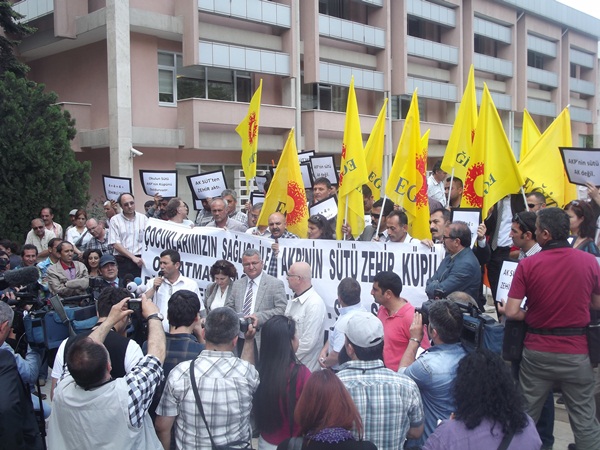An Update About Turkish Pharmaceutical Market
 THE PERFORMANCE OF THE TURKISH ECONOMY
THE PERFORMANCE OF THE TURKISH ECONOMY
The Turkish economy made a strong recovery in 2010 with 8% growth while most of the European countries struggled with the global economic crisis.
The Turkish government has targeted an average GDP growth of 4.8% and an inflation rate of 5% during the period until end of 2015. This means the Turkish economy seems to be quite strong and in good shape except for the account deficit.
MARKET GROWTH PROSPECTS & REFORMS
The Turkish pharmaceutical market is forecasted to grow by 8.1% between 2010 and 2015. The market revenue is expected to reach TL 23.6 billion by 2015.
AK Party (Justice and Development party) which has been elected for the 3rd time as the ruling party in June elections is determined to implement the health care reforms which were started in 2005 under the name of Health Transformation Program (HTP) and in particular the new “family practice system” which was introduced by the end of 2010.
PRICE DISCOUNTS DICTATED BY THE GOVERNMENT
Fast moving health reforms have resulted with “higher costs” and “increased demand” for health care services. Consequently, pharmaceutical companies were enforced to provide an industrial discount of 32% over their drug prices in 2010. Another mandatory discount is expected to come in 2011, as the government’s pharmaceutical budget is overshooting in 2011, as well.
These compulsory discounts will certainly have a significant impact on the revenue of the pharmaceutical market in the next 2 years.
The objective of the AKP government is to cover 100% of the population with the health insurance system, by improving economy by 2012. All outstanding government health services programs will have been incorporated into a single system, the SGK. The major challenge will be to manage the premium collection as there is a large size of informal employment sector.
On the other hand the government has also developed and implemented a powerful electronic management system (the Medulla) which will enable the authority to monitor prescribing, fine tuning closely and to provide data. Electronic prescribing is due to be introduced in 2011.
Access to positive reimbursement list and access of newer (more expensive) drugs to the ‘specialists only’ list will continue. New and expensive drugs access for reimbursement will remain as one of the major challenge of pharmaceutical companies in following years.
The government will keep the international reference pricing system to ensure that Turkish Pharmaceutical prices are below their European Counterparts. Turkish prices will be adjusted regularly and any price decrease in European counterparts will be directly reflected to companies.
DROP IN PROFITS
The pharmaceutical companies were obliged to make a total discount of 32,2% for patent original drugs and 20.5% for generics and off-patent brands for SGK by 2010.
Rules for generic pricing were introduced in December 2009 which set generic and off-patent drug prices at 66% of the original price. This certainly had a significant impact on the profits of companies in 2010.
Maintaining profitability has become a major problem for pharmaceutical companies with decreased prices and strict cost control system.
GENERICS, FAMILY PHYSICIANS & TRADITIONAL SALES ACTIVITIES
Referring to the family practice scheme, generics with lower prices are expected to have a considerable volume growth and could increase their market share (sales volume) from 45% (2010) up to 60% by 2015.
Another important new stakeholder has been emerging in the form of Family Physicians which requires suppliers to assess and adjust their traditional go-to-market approach.
Regarding marketing activities, sales force expansion may not be expected in future as an effective means of access to physicians as this becomes ever more difficult due to recently increased limitations for hospital entrance and doctor visits. Therefore, deploying sales forces will require more strategic thinking and more innovative approach for the companies to promote their brands.
CONCLUSION
Despite negative development for pharmaceutical companies, Turkish pharmaceutical market will continue to grow. Growing Turkish economy, growing population, aging population, increased health care service access, low drug spend per capita, the potential for fulfilling unmet medical needs will be the key drivers of the growth.
As a result, Turkey which is an emerging market is certainly attractive for multinational companies. Opportunities are forecasted to be even greater for generic companies.
Compiled & Edited by
Editor, BUSINESS TURKEY TODAY





